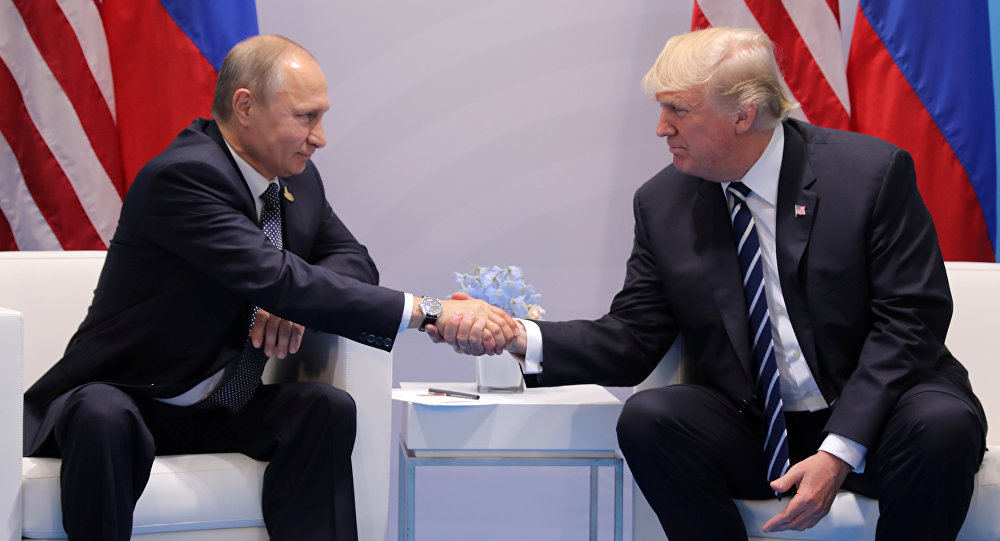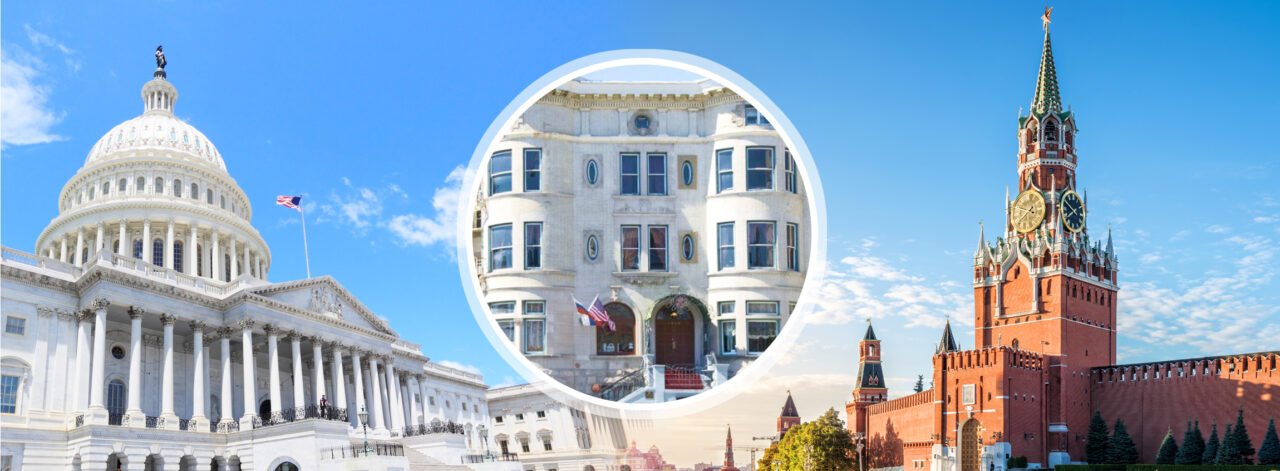
 The upcoming Trump-Putin summit in Helsinki is a triumph of common sense over bitterly anti-Russia politics in Washington and some European capitals. Prepared by National Security Advisor John Bolton, the summit is the culmination of President Trump's efforts to reestablish lines of communication with the world's other nuclear superpower that Barack Obama foolishly severed following the ideological agenda of the State Department and intelligence agencies.
The upcoming Trump-Putin summit in Helsinki is a triumph of common sense over bitterly anti-Russia politics in Washington and some European capitals. Prepared by National Security Advisor John Bolton, the summit is the culmination of President Trump's efforts to reestablish lines of communication with the world's other nuclear superpower that Barack Obama foolishly severed following the ideological agenda of the State Department and intelligence agencies.
By Edward Lozansky, James Jatras and Gilbert Doctorow
Edward Lozansky is President of American University in Moscow; James Jatras is a former US diplomat and former foreign policy adviser to US Senate Republican leadership; Gilbert Doctorow is a Brussels-based international affairs analyst.
The upcoming Trump-Putin summit in Helsinki is a triumph of common sense over bitterly anti-Russia politics in Washington and some European capitals. Prepared by National Security Advisor John Bolton, the summit is the culmination of President Trump's efforts to reestablish lines of communication with the world's other nuclear superpower that Barack Obama foolishly severed following the ideological agenda of the State Department and intelligence agencies.
In addition, the pre-summit visit of a delegation of Republican Members of Congress organized by Ambassador Jon Huntsman opens top-level lines of communication between the two sides and can help establish a minimum of mutual trust that has been missing for the last few years. If the decades of first Cold War taught us anything it was that machines fail, that humans are fallible, and that false attack alerts or misreading the intentions of the other side can easily lead to catastrophe.
The media have been rife with possible topics for discussion by the presidents in Helsinki, both with their staff and tête-à-tête. After years of negligible contact, there is a great deal to do to reach understandings on many dividing issues, including in such hot spots as Syria and Ukraine, where the two powers have armed forces in close proximity backing proxies at war.
If we turn from fire-fighting to reconstructing normal relations, we may hope the summit will lead to resumption of the twenty or so shared US-Russia cooperation initiatives identified back at the start of the Obama administration during the brief time of the "re-set." But whatever specific points the two presidents may agree to in Helsinki the very fact of the meeting and the re-creation of lines of communication will by itself fully justify the effort.
Starting on the campaign trail and up until now Trump has kept repeating his now famous line that "Only haters and fools do not understand that good US-Russia relations are a good thing, not a bad thing."
The fact that Trump has made rapprochement with Moscow a priority was cause for panic inside the deep state, which the president also likes to call the Washington "Swamp." This is because arriving at a stable modus vivendi with Russia would finally put an end to the oceans of tax dollars wasted for decades to contain the Kremlin. Having Russia as a friend is a direct threat to the power, privilege, and prosperity of a lot of well-placed folks, while Russia as an enemy is an endless potential for huge material and ideological advantages for the same crowd. That's why when it was reported soon after his inauguration that Trump was seeking to open dialogue with Moscow and set an early summit with Putin there was a hysterical counteraction that we recognize today as "Russiagate."
As NYU and Princeton professor Stephen F. Cohen correctly observed, Russiagate, "by crippling Trump's presidential duty to cope with the gravest international threats, has itself become the No. 1 threat to American national security, a reality for which the Democratic Party, though not only, bears a very large responsibility."
With the quickly approaching days of the summit, the attacks on Trump are frantic and have an air of desperation. Media headlines scream that Putin has "devoured" the American president, who is ready to "Finlandize" the US. So-called experts cry that Trump's summit with the "autocrat" Putin will be a "meeting of kindred spirits," while some GOP Never-Trumpers are switching to the Democrats. Moreover, one cannot rule out a direct provocation to disrupt the summit - the second scare of the chemical attack in Britain might be exactly that.
For Americans of all political persuasions, it is time to put aside petty issues of domestic politics. Whether we love Trump or hate him, whether we are Left, Right, or Center, it is time to see that we all have a stake in this summit's success. Trump's critics must resist the temptation to hope the summit is a failure, either because they want to see the "adults in the room" retake the GOP from the "Deplorables" or in anticipation of a Democratic Congress that will impeach and remove the President.
The only valid issues before us are American national interests and our country's continued existence. On these, we should all be united.



_jpg/250px-ElbeDay1945_(NARA_ww2-121).jpg)







